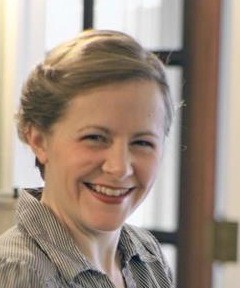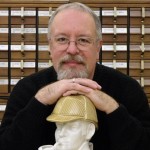 Melissa Petersen is a Christian, a speech therapist, a non-conformist, a dog lover, a kid lover, a feminist, a dancer, a quiet one, and a brave one. She lives in Seattle with her husband, her dog, her immediate family and friends. This was first published on her blog. She says, “I write to keep myself from hiding.”
Melissa Petersen is a Christian, a speech therapist, a non-conformist, a dog lover, a kid lover, a feminist, a dancer, a quiet one, and a brave one. She lives in Seattle with her husband, her dog, her immediate family and friends. This was first published on her blog. She says, “I write to keep myself from hiding.”
Our president has been mute about gay marriage for the past 3 years, and recently announced that he has finished his evolution and come out in favor. Finally. It’s not like we couldn’t see that one coming.
It has made me re-think my own position. Not my actual belief – that has been stable for a while (albeit, a relatively short while compared with the rest of my life). But my public position has been unstated, unclear, for some time. Hearing my commander in chief take the plunge has made my own silence more noticeable. Probably no one else has noticed, but maybe they have. And maybe even if they have not noticed, they should.
I grew up in a moderately conservative household, attending an Evangelical Free Church, with many surrounding influences much more conservative than my immediate family. In high school I was decidedly “anti-”, from both a civil/moral (“it’s bad for society, and/or unnatural”), and also a religious (“God says it’s wrong”) standpoint. It wasn’t until college that I started realizing what the real world looked like, and reevaluating my standpoint on many issues.
The first big issue I remember struggling with was women’s equality. The EFCM is “complementarian,” meaning that I’m a fully valuable person, but for reasons related to my uterus I’m unfit to do various churchy things, and am supposed to submit to all the men in my life. I vividly remember hearing a sermon in my childhood church where the pastor put three chairs on the stage–a big chair, a medium chair, and a small chair–and explained that [male] God sat in the big chair, men sat in the medium chair, and women sat in the small chair. It was an explanation of the “natural” hierarchy of authority in the world. In the sermon I was supposed to be comforted in my little chair by the fact that at least I got to sit in a chair (as opposed to sitting on the floor), and that men didn’t get the biggest chair. The pastor was apologetic as he explained that he didn’t make it up; it was what God said, and he was just letting us know. I got a small chair with a wobbly leg. The men got a nice cushy chair that was bigger than mine, and [male] God got the throne. I was not comforted at the time, and in college I had some knock-down-drag-out screaming matches with [male] God about that one.
A turning point was when I prayed to the Holy Spirit to either a) help me accept what I had been taught, if it were true, or b) show me how to rectify the truth I felt in my heart that women were NOT created as lesser creatures with the truth of the Bible. The Holy Spirit was alarmingly responsive; She immediately began to open my eyes and heart to better teaching, more historically accurate interpretations of disputed Bible passages, and theologians who based their belief in equality on the Bible which I loved. I was thrilled. I also left the church of the chairs for a Covenant church who saw me as a full person. That was nine years ago.
In between then and now I’ve had small awakenings around a variety of issues: global warming, evolution, education, organic food, capitalism, other issues of sexuality… I’ve definitely rejected many of the thinly-veiled political ideologies I was taught in Sunday school and youth group (“the truth” they called it), though none of those smaller rejections got me labeled as a heretic… yet. The Covenant church has been mainly supportive of these enlightenments, which has been wonderful.
Fast forward several years and repeat, only this time the topic is homosexuality. After watching the response of Bible-thumping Christians to the issue (appalling), and successfully separating civil rights from religious belief (a separation that enabled me to see the grave injustice in denying civil rights to LGBT individuals, and support civil unions, etc), I was still troubled. I *wanted* to accept homosexuality, but hadn’t figured out how to do it and value the Bible also without the sort of mental gymnastics that require you to accept that 2+2=5. One of the events which pushed on me was learning that a close Christian friend of mine was gay, and meeting her girlfriend. It took me a while, but I finally had the courage to ask the same question I asked back in college. “Please show me how to accept this hard teaching which I feel is wrong, or show me how it is wrong.” Once again, She gave me an answer with unsettling swiftness. I’ve now left the Covenant church for an “open and accepting” church, mostly for other reasons, but I wish the Covenant had been able to grow with me through that process. I’m happy where I am, but I miss my church.
For at least two years I have been saying “I don’t know” when people asked me what I thought about the morality of homosexuality. I explained that I used to think it was wrong, but didn’t know what to think anymore. It was a true answer at the time, but holding on to that answer now would be cowardly.
So I related to President Obama when he made his announcement earlier this month. He’s been thinking about it for a long time, and come hell or high water, the right thing to say is still the right thing to say. I applaud his courage, and am working on mustering my own.
I am pro-LGBT. I believe all loving couples should be able to marry. I am anti-LGBT discrimination. I do not believe this is an issue of immorality, or inconsistent with my Christian faith.
I’ve come out.
